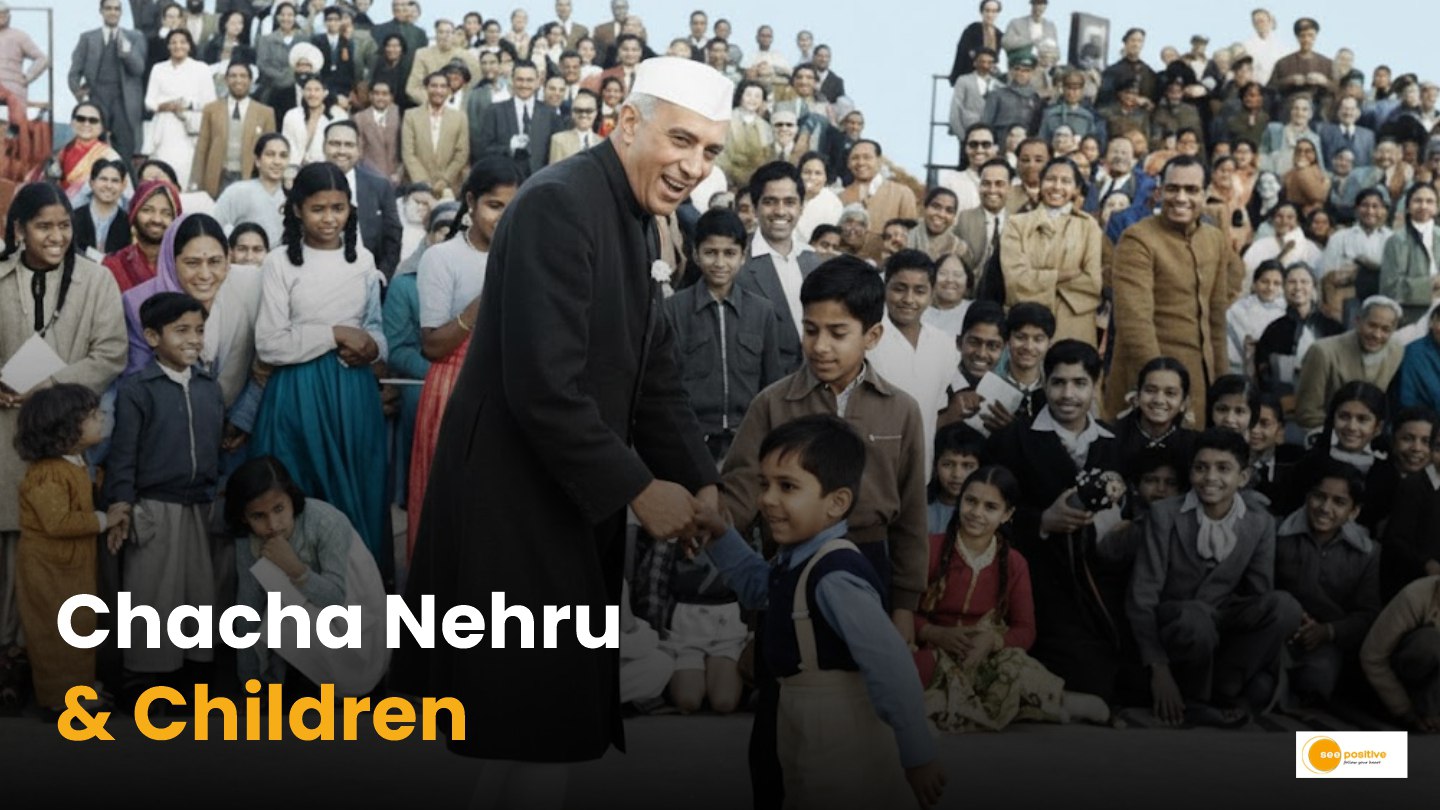Every year on November 14, India celebrates Children’s Day. Children’s Day marks Chacha Nehru’s Love for Children and it honors the birth anniversary of Pandit Jawaharlal Nehru. He was country’s first Prime Minister and one of the chief architects of modern India. Known fondly as “Chacha Nehru,” he shared a special bond with children, who adored him for his warmth, humor, and deep affection. Nehru firmly believed that children are the true foundation of a nation’s future. His life, filled with compassion, wit, and curiosity, offers countless stories that continue to inspire both young and old. Nehru once said,
“The children of today will make the India of tomorrow. The way we bring them up will determine the future of the country.”
For him, every child represented hope, progress, and beauty—like a fresh bud waiting to blossom in the garden of life.
Heartwarming Stories About Nehru and Children
The Red Rose and the Little Girl
One of the most popular stories about Nehru tells of a small girl who offered him a red rose during a public event. Nehru bent down, accepted it with a big smile, and placed it in his buttonhole. When asked why he always wore a rose, he said,
“A rose reminds me of children—fresh, beautiful, and full of life.”
That simple rose became his signature, symbolizing his love and respect for the innocence of childhood.
The Classroom Visit
Children’s Day, Chacha Nehru’s Love for Children
During one of his visits to a school in Delhi, Nehru surprised students by sitting among them during a class. The teacher, a bit nervous, asked, “Sir, would you like to take the seat in front?”
Nehru laughed and replied,
“No, I want to be a student again for a while.”
He listened to the lesson, interacted with the children, and later told the teacher that curiosity and laughter are the best signs of real learning.
Nehru’s Childhood Curiosity
Children’s Day, Chacha Nehru’s Love for Children
As a child, Jawaharlal Nehru was full of questions. He would ask his father, Motilal Nehru, endless queries about stars, rivers, and history. His mother, Swaruprani Nehru, once joked that young Jawahar didn’t sleep until he had learned something new each day!
This curiosity shaped his later life as a thinker and writer. His famous book “Letters from a Father to His Daughter”, written to his daughter Indira Gandhi when she was just ten years old, beautifully explains science, history, and nature in simple words—showing how much he valued education through storytelling.
The Playful Prime Minister
Children’s Day, Chacha Nehru’s Love for Children
Despite his busy political life, Nehru often found time to play with children. During a visit to an orphanage, he was seen joining a group of kids in a game of cricket. When one boy jokingly asked, “Chacha, can you bat?” Nehru laughed, picked up the bat, and said,
“I may not hit a six, but I’ll surely try!”
The children burst into laughter when he missed the ball completely—but he clapped and cheered for them, proving that his spirit was always young.
Nehru’s Jokes and Warmth
Children’s Day, Chacha Nehru’s Love for Children
Nehru had a charming sense of humor that made him popular among kids. Once, at a function, a boy asked, “Chacha Nehru, why do you wear only white clothes?”
Nehru replied with a smile,
“Because white doesn’t show the ink stains when children make me sign their notebooks!”
Moments like these made him approachable and loved by all.
Interesting Trivia About Pt. Nehru
- Nehru’s favorite flower was the red rose, symbolizing love and beauty.
- His nickname “Chacha Nehru” came naturally because children felt he was like a loving uncle rather than a distant leader.
- He loved writing letters, especially to young people, explaining complex ideas in simple, inspiring words.
- Nehru strongly supported scientific thinking and founded several prestigious institutions, including the IITs, IIMs, and AIIMS.
- He believed that play and imagination were as important as study in a child’s growth.
Nehru’s Vision for Children
Nehru’s dream was to see India where every child had access to education, freedom, and joy. He believed schools should be places that nurture curiosity, not just impose rules. His approach was gentle yet powerful—rooted in empathy and optimism.
He often said,
“Children are like buds in a garden; they should be carefully and lovingly nurtured, as they are the future of the nation.”
Read More: https://seepositive.in/education/how-the-nobel-peace-prize-is-decided-and-what-it-offers/


